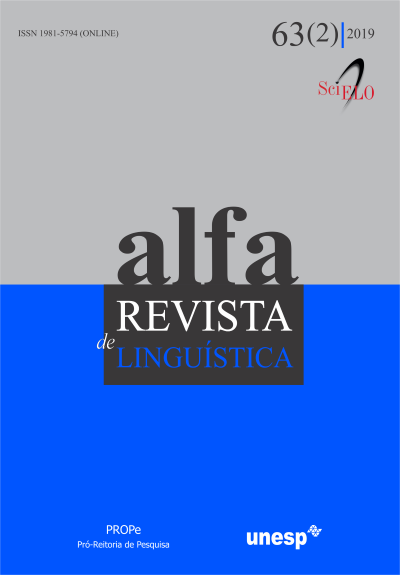The role of low heads in the causative interpretation in brazilian portuguese: some notes on event composition, f-seq and nanosyntax
DOI:
https://doi.org/10.1590/1981-5794-1909-8Keywords:
Causativization, Event composition, Aktionsarten, Nanosyntax, Functional hierarchy of the verbal domain,Abstract
In this paper, we investigate the causativization process in brazilian portuguese, seeking to understand the constraints and generalizations that allow us to explain the apparently chaotic data of this phenomenon in this language. In order to reach our goal, we explore the hypothetico-deductive method and hypothesize that there are elements from the aktionsarten domain that determine the verbal behavior in relation with a causative meaning. Consequently, we present a theoretical review of aspectual classes, employing the tools of a recent approach to the architecture of grammar named Nanosyntax (Starke, 2009). Thereby, it will be possible to understand the more fine-grained constraints that the classes of ‘states’ and ‘accomplishments’, for instance, impose for the causativization, taking into account ‘nano’ syntactic and semantic features, such as Initiation, Process, Result and Boundness. We conclude, therefore, that for a predicate to be interpreted as a causative one, the event denoted by it needs to be dynamic in its nature. In addition, we show that the functional sequence (F-seq), in the way it is proposed within the nanosyntactic model, allows us to explain the possible association of more than one syntactic node with the same verbal argument, as well as its underassociation and consequent identification with a null causative nucleus, as it happens to be the case in brazilian portuguese causativization.
Downloads
Downloads
Published
How to Cite
Issue
Section
License
Manuscripts accepted for publication and published are property of Alfa: Revista de Linguística. It is forbidden the full or partial submission of the manuscript to any other journal. Authors are solely responsible for the article's content. Translation into another language without written permission from the Editor advised by the Editorial Board is prohibited.

